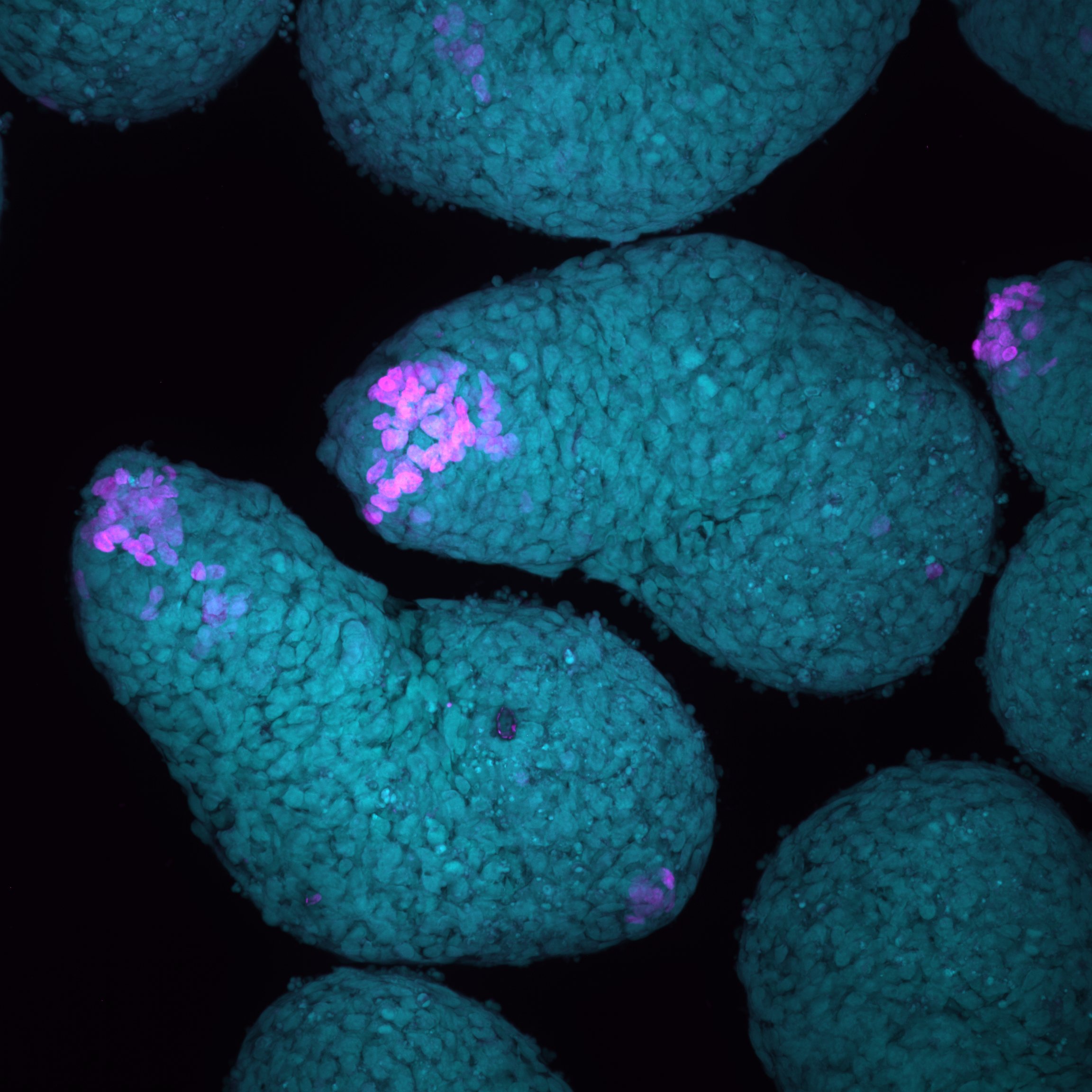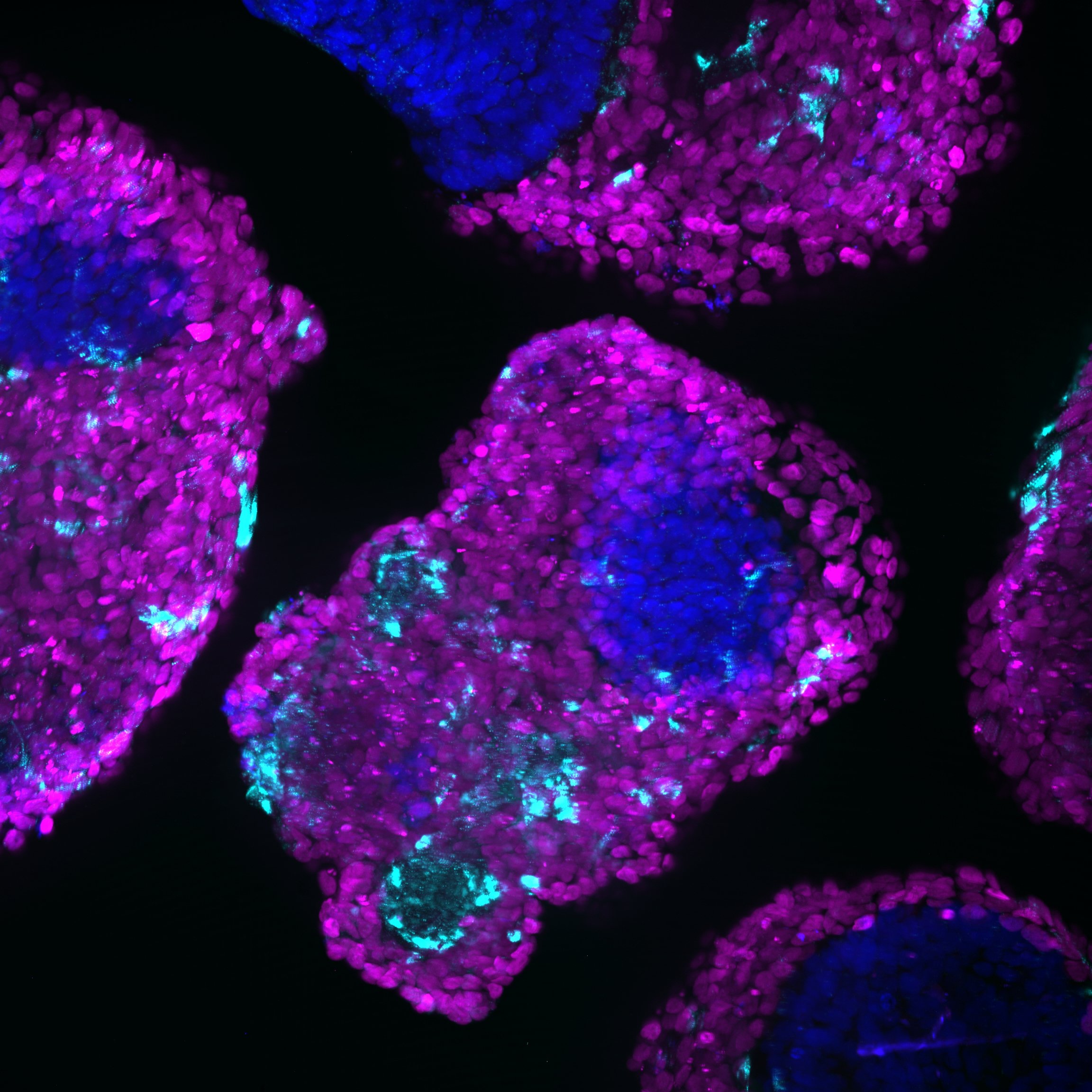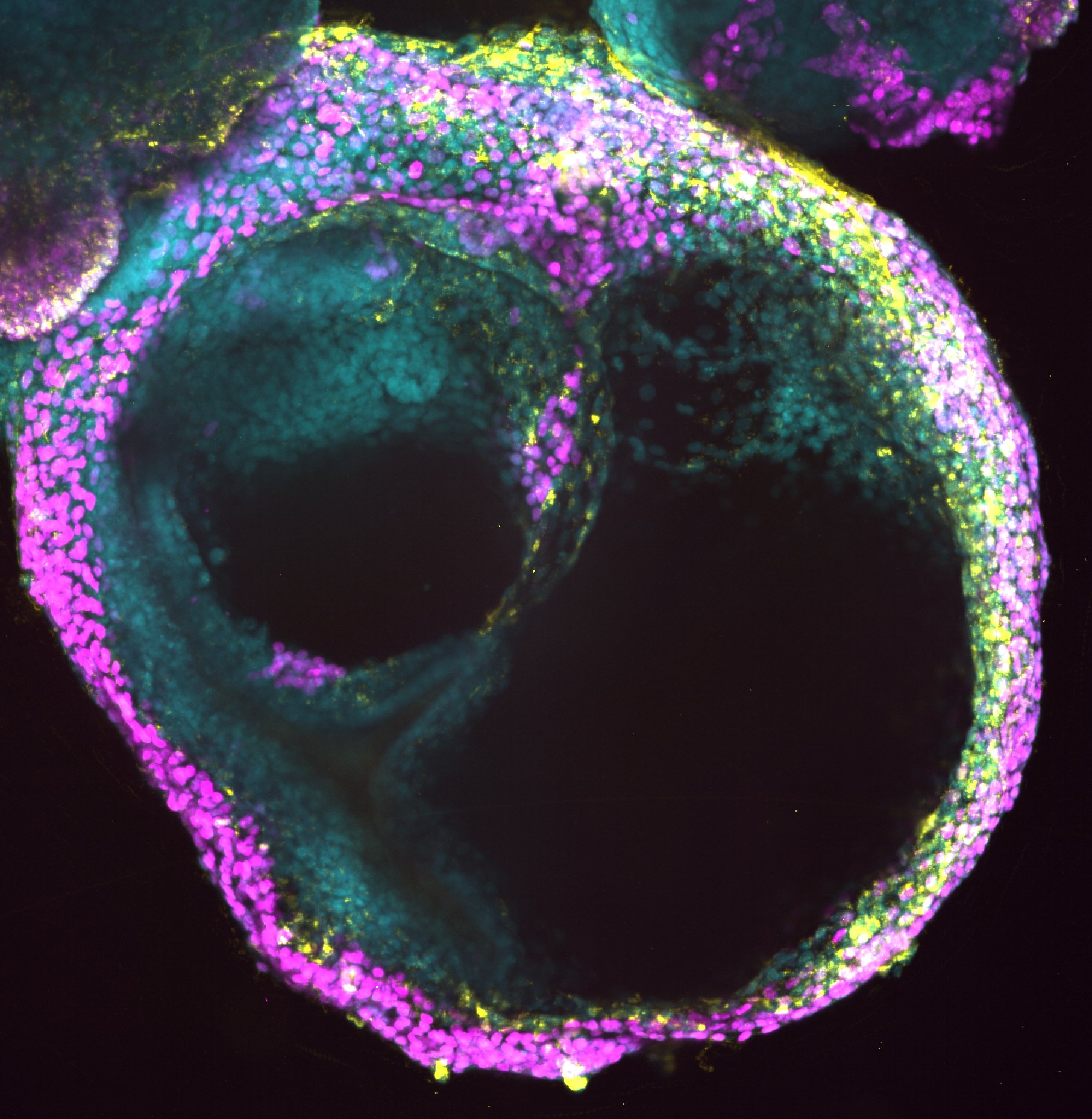Hello.
My name is Christoph Budjan and I’m a developmental and stem cell biologist. I am interested in how cells make decisions about their fate and how they self-organize to develop into an organism.
Find out what I am interested in, what I am currently working on, or have a look at my past research.
Say hello.



Research Interests
Principles of cell fate decision making
The development of an embryo involves a series of spatio-temporally ordered cell fate assignations. These decisions are controlled by mechanical and chemical inputs and lead to the emergence of different tissues and organs. From the level of tissues, these decisions appear to be deterministic giving rise to highly robust and reproducible patterns. However, on the single-cell level gene and protein regulatory processes, which underlie cell fate decisions, are subject to stochastic effects inherent in biochemical reactions. Understanding how this macroscopic order on a multi-cellular scale arises from stochastic processes on a molecular and cellular level is poorly understood.
I am interested in how cells make decisions about their fate during development. Particularly, my current research focuses on how cells interpret various environmental signals and integrate them to make precise and reproducible decisions. Furthermore I am interested to which extent this interpretation depends on prior experience (i.e. the internal state of a cell) versus the spatio-temporal dynamics and the statistics of those external cues.
Studying general design principles of core circuitries controlling cell fate decisions as well as elucidating how cells integrate and process information about their environment (including neighboring cells) to generate specific responses might help to understand how organisms go from stochasticity at the molecular and cellular level to deterministic behaviors on the tissue and organismal level.
Principles of multicellular self-organization in development
The multicellular process of self-organization during the development of an organism is an attractive mechanism that bridges the stochastic nature of single-cell fate decisions to the deterministic outcomes at the tissue and organismal levels. This phenomenon is strikingly exemplified in the study of gastruloids, which serve as our model system to elucidate the principles underlying the spatiotemporal coordination of cellular specification and subsequent morphogenesis. In this context, gastruloids provide a compelling framework to investigate how multicellular systems transition from a collection of individual cells, each experiencing intrinsic stochasticity in gene and protein expression, to well-ordered, functionally specialized tissues and organs.
By revealing the principles of cell fate decision-making and multicellular self-organization, we seek to uncover how cells not only make individual decisions based on their microenvironment but also how these decisions are integrated on a multicellular scale to give rise to structured and predictable patterns of development. Gastruloids, with their remarkable self-organizing capabilities, offer a unique opportunity to study these processes in a controllable, reproducible, scalable, and quantitative manner.
